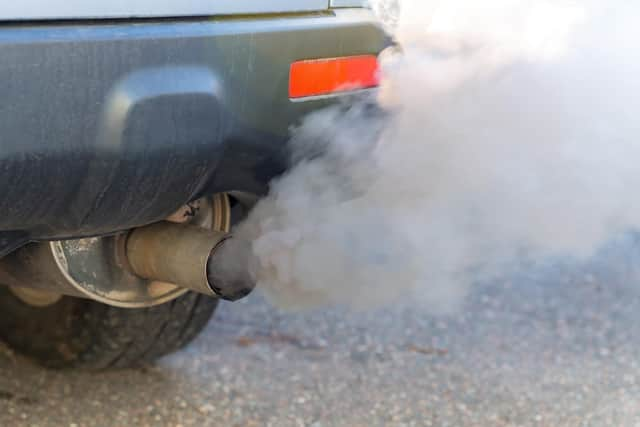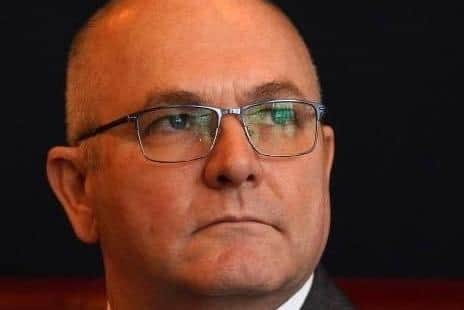LEZ Scotland: Glasgow low-emissions zone 'harming city centre nightlife', as businesses claim drop in after-hours footfall and trading down
Businesses say the low-emissions zone (LEZ), which bans ‘dirty’ vehicles from a square-mile area around the city centre, is having a detrimental impact on pubs, restaurants and nightclubs because fewer people are frequenting the area outside office hours due to the regulations.
According to the Scottish Hospitality Group, which carried out a poll of local businesses, two thirds of Glasgow’s hospitality venues have reported that footfall after 7pm has gone down, with most blaming the LEZ and inadequate public transport for the drop.
Advertisement
Hide AdAdvertisement
Hide AdIn the survey, completed by the owners and operators of around 120 premises across Glasgow, 67 per cent reported a reduction in footfall, with 63 per cent attributing the cause to the LEZ and poor transport. Respondents said the LEZ, which carries fines for drivers of non-compliant cars and vans who enter the area, and a lack of late buses and trains were also adding to problems in hiring and keeping staff.
Nearly half of businesses (47 per cent) said trading figures were worse than before the pandemic, while 29 per cent said they were roughly the same. Statistics suggest around 2,500 Scots die prematurely each year as a direct result of breathing toxic air pollution, with exhaust emissions from petrol and diesel transport a large contributor.
Glasgow became the first Scottish city to introduce a LEZ at the end of 2018 in a bid to improve air quality around the most heavily congested roads, with regulations initially aimed at buses. It was put into action following a public consultation.
The scheme was extended this year to ban all vehicles which don’t meet modern emissions standards from the zone. Fines for those breaching the limits were imposed this summer.
Traders have criticised Glasgow City Council for the way the LEZ has been rolled out, accusing leaders of producing “fantasy figures” to support the “rushed” move.


Scottish Hospitality Group spokesman Stephen Montgomery said: “When the consultation for LEZ in Glasgow was being done, we didn't have the full financial details on the devastation that the pandemic and its impact on businesses and consumers would have.
“For hospitality there’s no doubt that we as a sector were the hardest hit, especially in Glasgow, where lockdowns lasted longer than anywhere else. Given the impact of the pandemic, we would have liked the council to have undertaken a secondary consultation on LEZ.
“But they didn’t, and instead its implementation is yet another example of a rushed policy. It fails to take into account the risk to business, the risk to footfall and the financial risk to employees working inside the LEZ.
Advertisement
Hide AdAdvertisement
Hide Ad“For instance, it raises huge concerns for our late-night venues, who book singers and groups that usually have a van with equipment – many of which are now not compliant with the LEZ. Even if it was a policy they were set on, I don’t understand why they wouldn’t set a date for three or four years down the line to allow everyone to get back on their feet financially after the pandemic before imposing these kinds of restrictions on them.”


A legal challenge against the scheme is due to start in October after a senior judge gave the go-ahead for a judicial review. William Paton, who runs an auto repair centre in Glasgow’s Townhead, is fronting the campaign against the LEZ.
He said results from the latest survey cast doubt on statistics used by the local authority, which claimed footfall in the evenings and at weekends was up by around 20 per cent from pre-pandemic levels and that spending in the city centre had risen by about 25 per cent in the same time period.
“I feel we have proved conclusively that Glasgow City Council, its elected representatives and officials are using outdated data to justify LEZ,” he said. “The council leader produced fantasy figures regarding the city’s hospitality industry.”
Mr Paton added: “How strange that the business owners who actually are on the ground and know the truth of what is happening in our struggling city have produced research that shows the council are talking absolute rubbish.”
Glasgow City Council rebuffed the accusations, saying the data had been collected from automatic counters, and defended the measures to improve air quality. A spokesman for the authority said: “The sensors that capture city centre activity show that footfall is above pre-Covid levels at the weekend and in the evenings.
“We know this is a challenging time for the night-time industry due to the combined challenge of Covid recovery and high inflation. We have been working closely with the business community on how to support the city centre and we will continue to engage with them.”
The spokesman said “billions” of pounds being invested in city centre developments would help to boost the population in the longer term and make the area far more resilient in future. He said: “The LEZ is a crucial public health measure that aims to tackle the harmful pollution that has blighted Glasgow city centre for decades.
Advertisement
Hide AdAdvertisement
Hide Ad“Up to 90 per cent of vehicles currently entering the city centre are already compliant with LEZ standards. The council is satisfied that it correctly assessed available air quality data when taking the decision to implement LEZ Phase 2.”
The spokesman said the council would “vigorously contest” the coming court case, but it would be “inappropriate” to comment further on live legal proceedings.
Comments
Want to join the conversation? Please or to comment on this article.